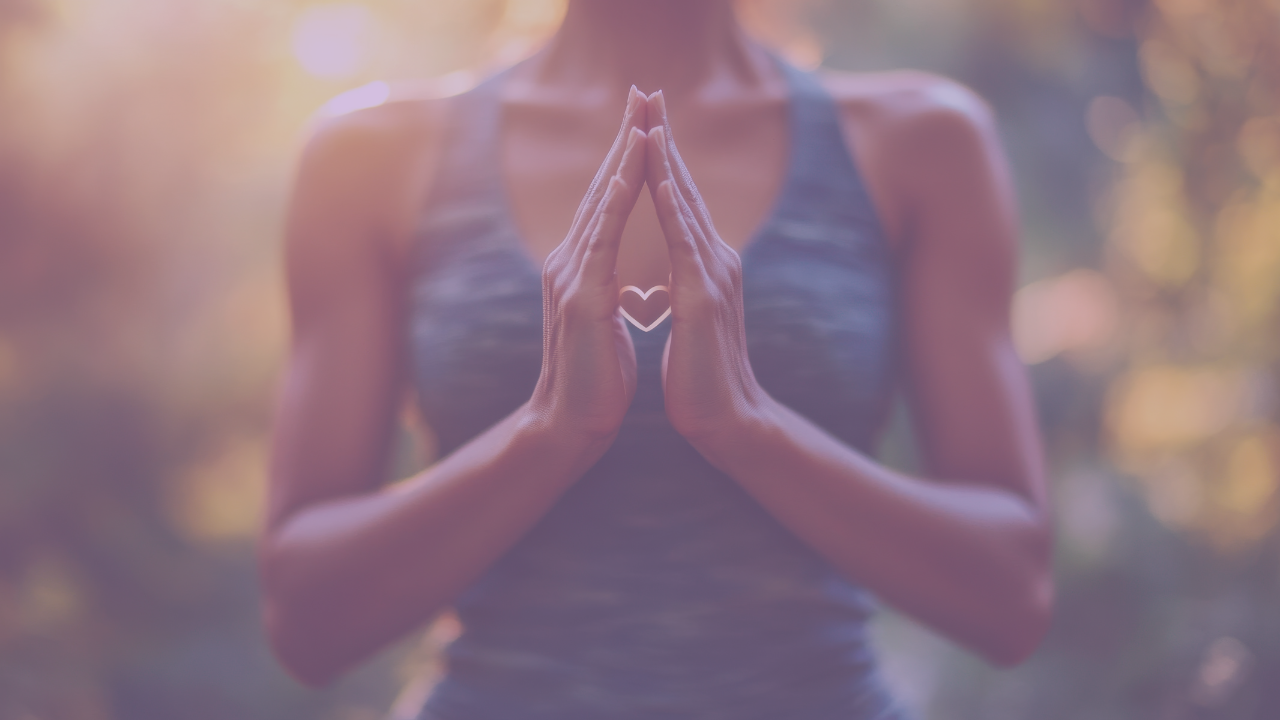"Remember, you have been criticizing yourself for years and it hasn't worked. Try approving of yourself and see what happens." ~Louise Hay
Starting a new habit? Be gentle with yourself (and kick the judgement to the curb.)
New, positive habits are fragile things at first. Maybe we know what we should be doing in our lives to feel better, have more confidence, live longer, enjoy better relationships, and more. Yet there is something that has made this change difficult for us in the past.
Creating change in our habits like regular exercise, eating nutritious, real food, daily meditation, seeing a therapist, and tending to your physical health with medical visits are all good ideas. But, when we go to practice them, it seems our lives often “get in the way” of making a habit stick for the long haul. So, how do we make even one healthy habit a non-negotiable when it seems impossible at times?
Seriously, it may feel like predestined failure to even imagine how you’ll fit in one more thing to your already cramped schedule, demanding relationships, or work deadlines that won’t budge. What’s the secret?
Release Judgements
After you have made the decision to prioritize this new habit, the very first step to creating lifelong practices you actually make time for is stop judging yourself.
Why? Because harsh self-judgement creates more hurdles than it eliminates. When we self-judge, we can spiral into shame, depression, and further paralysis to do anything to change our habits. As the saying goes, pain is inevitable, and suffering is optional. The judgement adds the unnecessary suffering to the equation.
The inner conversation can go something like this:
“Ugh. I wanted to meditate today, and I had even marked out time in my calendar to rest and tune into a YouTube meditation video that looked interesting. But then my three-year-old wouldn’t take her nap and my boss piled an extra assignment on my week. I’ll never be able to take time for myself, so why should I even try? I’m terrible at setting limits and I can’t stand confrontation--I know I’ll eventually just end up saying “yes” every time someone asks me to do something even if I want to say no. Every time I think I’ve got it figured out, something comes up. I must not deserve to feel better--I may as well stop trying.”
Does any part of this internal dialogue sound familiar? Judging ourselves as unworthy of our own self-care simply perpetuates our misery and digs our hole of status-quo that much deeper.
Instead, try practicing curious awareness of the judgements and then rewiring your inner self-talk next time your Judgy Voice speaks up. Here’s an example:
“Hmmmm, it’s interesting that when I set aside time for myself, something always seems to get in the way. I wonder what that’s about? I wonder what steps I might need to take to guard my relaxation time a little more carefully? I wonder what would happen if I took myself “off the grid” for a few minutes each day and did what I needed to care for myself? How would that feel? How would others respond? Would that bother me? Are their needs always more important than mine? What has been the result of my current behavior over time?”
You see the difference, right? Your Judgy Voice makes accusations and lays blame internally and externally. Your Self-Care voice asks questions and makes observations in a neutral tone. Which voice do you think is more conducive to setting and keeping healthy habits?
If you guessed the second, Self-Care voice of Inquiry, I'd agree.
The story of the second arrow is a teaching that clearly shows the unnecessary suffering of personal judgments.
The Buddha was giving a teaching to an assembly of his monks and nuns. He asked, “If a person is struck by an arrow, is it painful?”
The monks and nuns replied, “Yes, it is.”
The Buddha then asked, “If the person is struck by a second arrow, is that even more painful?”
The assembly replied again, “Yes, it is.”
Then the Buddha explained, “In life, we cannot always control the first arrow. However, the second arrow is our reaction to the first. The second arrow is optional.”
In summary, as humans, we will have painful experiences, which are like the first arrow. However, to get upset by the first arrow and judge, criticize, or deny the first arrow is like being struck by a second arrow inflicted by yourself. Many times the first arrow is out of our control, but the arrow of reactivity is not.
Give Yourself Time and Patience
Setting and keeping new habits is a learning curve. You’ll have successes and setbacks along the way. When you observe both events in a neutral light without self-judgement, you can get back on the path of self-compassion and habit change more quickly and efficiently.
You may also enjoy this article about developing intrinsic motivation to make a habit change. I hope you’ll stay tuned to our blog for more ways to change your life in baby steps. We’re fans of meditation and movement as two of those small, manageable habits that make big changes in many areas of life.
Join us to Help You Let Go of Self-Judgement
Learn more about our upcoming Movement and Meditation 6-week series HERE. It’s where we take those fragile, start-up habits and give them lots of support and nurturing, so you CAN finally make them regular, good-feeling parts of your week.
Plus, when you create new habits like Movement and Meditation, you’ll begin to FEEL self-sustaining, motivating results like better sleep, more mental focus, and a deeper inner “knowing” that breeds self-confidence and less judgement---of yourself and others too.
Here’s a fun and easy way to begin shifting your Judgement Voice into your Self-Care Voice of Inquiry.
With love and gratitude,
Sara and Les
The Mindful Movement
PS: Be sure to visit this LINK to learn more about our 6-week new healthy habit incubator, Move and Meditate: Self-Care You Deserve For a Lifetime. We’d love to help you make your new healthy habits a reliable part of the life you WANT.
Additional Resources:
If you are looking to dive into the world of meditation, a great starting point is our 7-Day Introductory Meditation Course. This free program is a great resource for beginners and those looking to step back into the practice of meditation
Purchase your favorite Meditation and Hypnosis practices from the Mindful Movement. You can download an MP3 file to listen to anytime, anywhere with no internet access necessary.
A personalized hypnotherapy session will can support you in making a change you desire. It would be my honor to help you through the process of change that you are looking for.
Let us know how we can help. Please feel to leave a comment with any other suggestions, comments, or questions for the community!







